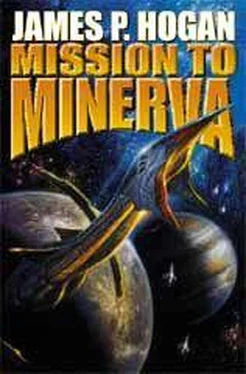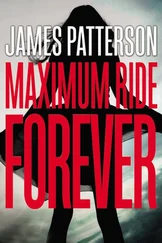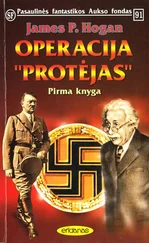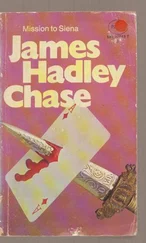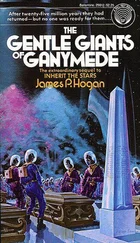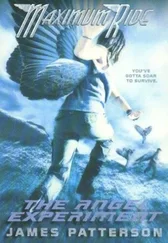Hunt felt again the same confusion he had when Mildred brought this up. There had to be an answer, but he couldn't bring to mind what. It wasn't something he had been giving much thought to since.
"The implications could be profound indeed," Danchekker continued. "Consider this. Physics asks us to accept that the Multiverse in itself is timeless, yes? The sequence of change that we perceive is created by consciousness navigating a path through its succession of alternative branchings. Precisely how it does so is a mystery-and to dispel any rising hope that you might be entertaining at this juncture, not one that I am about to cast further light on now, I fear." Danchekker showed his teeth briefly at his concession to humor. "But the fact that it is able to do so at all perhaps furnishes us with the essential defining criterion for what consciousness is. In fact, I should go beyond that and say 'life.' For by what I'm proposing, it follows that all life is conscious to some degree. Let's not confuse it with self-awareness, which is a qualitatively different subset of the phenomenon I'm talking about."
"So what are you proposing?" Hunt asked, resigning himself. He was obviously going to have to hear it through in any case.
"This. An inanimate object is subject solely to the laws of chance. The future that it comes to experience-or the particular reality that a given version of it exists in, if one wishes to be pedantic about it-is determined by forces and probabilities external to itself. And that is the world that physics accurately describes. But a conscious entity-and by what I said a moment ago, I mean all living organisms-by altering its behavior, has the ability to change those probabilities. It can steer itself toward a future different from the one that it would otherwise have experienced-presumably one which by some means it evaluates as more desirable. The degree to which it is able to do this is, perhaps, a good indicator of how conscious it is. It's a criterion that could conceivably apply equally well within a sapient species, such as ourselves, as across all of life in general."
"Are you talking about plants as well? Bacteria? Fungi?"
Danchekker waved a hand dismissively. "Yes. They all react to environmental cues to improve their odds for living a better life."
Hunt was losing the thread. "So where does Mildred come in?"
"By pointing out, unarguably in my estimation, that conscious beings like ourselves will act to eliminate whole swathes of futures which, although the mathematics of the purely physical might allow them, will never come remotely close to happening for reasons that are only meaningful in terms that consciousness deals in. At some point along the way from the existence of every possible configuration of matter that quantum physics allows, to the actual realities that make up the Multiverse, some kind of 'plausibility bound' sets in that limits the forms they take. Consciousness intervenes to inhibit the quantum transitions that would lead to the excluded realities. How it does so, I have no idea. But it goes a long way toward explaining the somewhat limited success that has attended our efforts to apply physical theory to biological and social phenomena. Much of what the Thuriens talk about suddenly makes a lot more sense." He looked at Hunt expectantly.
But Hunt was still feeling irritated by the condescending air with which Danchekker had dismissed the subject Hunt had tried to bring up, which had been Hunt's prime reason for coming here. Now Danchekker was telling physicists where they had erred in their own domain and offering unasked-for advice on how to fix it. "Well, thanks, Chris, but physicists really are capable of handling the physics," he heard himself say, more shortly than he had intended. "The main job right now is getting the Multiporter to stay connected to somewhere. I don't see how this kind of metaphysical speculation is going to help much."
Danchekker's mouth clamped shut. He drew a long breath, clearly displeased at this reception. "You've constantly reminded me in the past that I should be more open-minded to some of your own wider-ranging conceptions," he said stiffly. "When I venture precisely that, you tell me to stay in my own field. Well, what do you want, for God's sake?" He produced a handkerchief and proceeded to wipe his spectacles. "At least I've always had the good grace to admit as much when, upon further consideration, I concluded that you may have been correct. I do trust that on this occasion I will be accorded the same courtesy." He replaced his spectacles and looked around. More voices were coming from inside. "And now would appear to be a good time to see how our young colleagues are getting along. I do believe that Josef and Chien have joined them." With that, Danchekker turned away, crossed over the footbridge, and disappeared inside through the doorway.
Hunt propped his elbows on the rail of the balcony, sighed, and stared out at the scene. Some Thuriens who looked like students waved up at him from a terraced enclosure some distance below. Hunt acknowledged with the brief raising of a hand. Yes, he knew he'd been out of line. What was getting into him? A fine way to begin a research project, he told himself glumly.
Christian was always telling Mildred tactfully-as closely as he was capable of getting to the meaning of the word, anyway-that she talked too much. If it was true-and she had to concede him something of a point at times, she supposed-then she must try to watch herself and control the trait when she was with Thuriens, she reminded herself. She was here to learn, after all. The trouble was that she always had so many thoughts boiling around inside her head, and she was afraid that if she didn't give vent to them while they were there, they'd sink back below the surface and never come up again. Very probably, it could be exasperating for others sometimes. But surely it was preferable to being like all those people she met everywhere who never seemed to have a worthwhile thought of any kind at all.
Poor Christian! She knew she'd been a pest back in Washington, and he had always been dedicated to his work, even without all the responsibilities of his new job at Goddard. But this project involving a whole, totally different alien culture was so exciting! He was simply too valuable an authority on it all to have just let pass. And he had been a dear to try and extricate himself in such a gracious way, instead of just telling her bluntly that he didn't have the time, in the boorish way that most of the pompous professors she had met over the years would have done. So she had resolved to do her best not to be a deadweight and to cultivate some interest in this Multiverse business that he and the others were getting so involved in with the Thuriens. Actually, it was turning out to be far more interesting than she had ever imagined, even if some of the things they talked about didn't make sense; and she would strive to be independent in pursuing her own work, staying out of their hair as much as possible.
The office the Thuriens had given her to work in couldn't have been better contrived to make her feel at home. It had shelves of reassuringly solid books; a desk and furnishings of polished mahogany and walnut that suited her tastes, along with drapes and a carpet that blended in; a clutter of homey bric-a-brac that included a china-laden mantlepiece, flower vases, and a cuckoo clock; and diamond-paned windows looking out over a valley of the Bavarian Alps. This was hardly surprising, for VISAR had contrived it all to achieve just that. None of it was real, of course, but it all came with a simulated filing cabinet and notepads that she understood, and a work terminal on the desk that used the formats and procedures that she was familiar with back home. The nice thing about it all was that everything she produced while she was on Thurien would find its way back via VISAR and the phone system somehow, and be waiting for her in her own files when she returned. She could even change the pictures on the walls anytime she got tired of them.
Читать дальше
